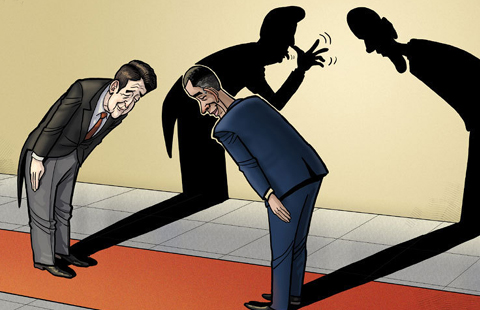A volatile year awaits emerging economies
By Ma Jun (China Daily) Updated: 2014-12-25 07:48An important challenge for emerging economies in 2015 will be potential capital flight in the face of the US rate hike. If the pace of the US rate hike is more aggressive than expected, significant capital outflows from some EM countries may result in high volatility in their exchange rate and financial markets. For some smaller EM markets, even if the US rate hike is fully expected, currency volatility may not be avoidable given the small size of their FX and capital markets.
To avoid excessive short-term cross-border capital flows and their impact, the International Monetary Fund and many EM countries have sought to develop a framework for "Capital Flow Management". My view is that this framework should take into account at least five elements: First, Maintaining healthy economic fundamentals. Countries with stronger growth, inflation, fiscal and balance of payments positions tend to be much less susceptible to capital flows; Second, Keeping macro policy flexible. For example, in the face of capital flows, permitting some exchange rate appreciation may help reduce expectation of further appreciation and thus containing the incentive for additional inflows; Third, Adopting certain prudential measures such as Tobin taxes or Tobin fees, unremunerated reserve requirement, caps on loan-to-value ratios, and capital-based limits on external debt, when capital inflows are stronger than what can be handled by macro policy responses; Fourth, Strengthening multilateral and bilateral liquidity support mechanisms.
In addition to the IMF, and regional mechanisms such as the EU and Chiang Mai Initiatives, BRICS members' Contingency Reserve Arrangement and bilateral foreign exchange swap agreements can also increase the resources, flexibility and effectiveness of liquidity assistance; Fifth, Improving policy communications between issuing countries of international currencies (mainly the US) and EM countries, to help the latter better prepare for the possible spill-over effect of policy changes in major economies.
The author is chief economist of the research bureau of the People's Bank of China.











